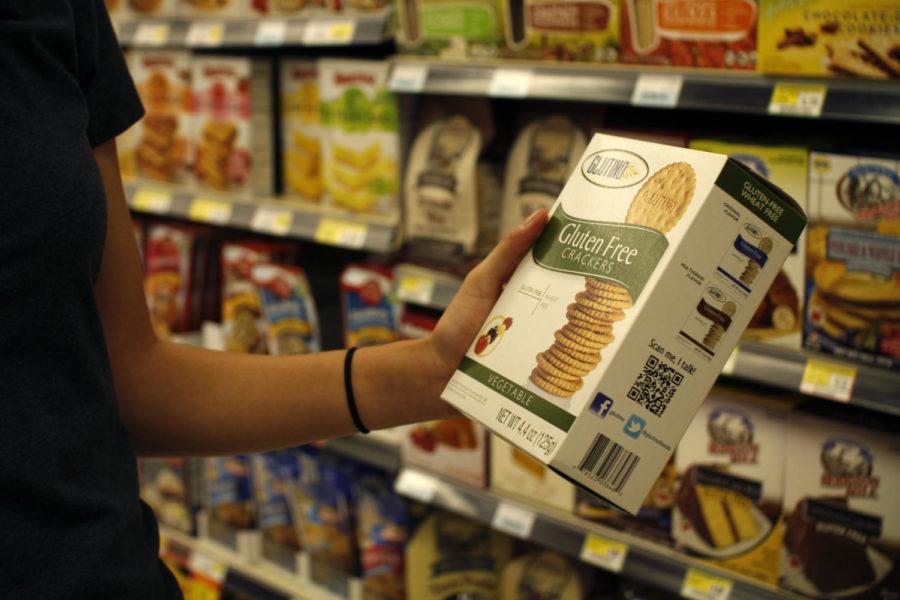Recent diet fad requires more than avoiding gluten
August 28, 2013
A gluten-free diet is often the result of having celiac disease, which affects only 1 percent of the world’s population. Yet, the gluten-free diet has become a fad for those without the disease.
“Every 10 years or so there is a new thing … and right now gluten is the No. 1 topic,” said Dr. Ali Husain, gastroenterologist at McFarland Clinic, “A lot of research is being done on celiac right now; therefore, more people are becoming aware of it.”
Husain said it is possible to lose weight successfully while on a gluten-free diet by being more aware of what you are consuming on a daily basis.
“People do lose weight on a gluten-free diet, partially because people are reading their labels and … a lot of the food that contains gluten is carbs, and if you avoid carbs we know that people would lose weight,” Husain said.
But instead of choosing to go on a gluten-free diet, said Lisa Nolting, registered dietician with ISU Dining, there are other ways to eat healthier.
“Focus on vegetables: They will fill you up and have a lot of nutrition,” Nolting said. “[Eating] lean proteins, fruits, whole grains, some type of low-fat dairy, eating breakfast, drinking water and staying away from sugary beverages [will help].”
Yet unless a person has celiac disease or another food allergy, it is never good to eliminate a food group because it eliminates the variety of food to choose from. People need a variety of nutrients in their bodies, Nolting said.
Husain agreed: “Be healthy in other ways, just not this way.”
Those individuals who need to go on a gluten-free diet are typically diagnosed with celiac disease, an intolerance to gluten.
“Celiac is a disease that you need genetic predisposition for, which means whenever you are exposed to a particular protein in wheat, barley or rye, your T cells in your immune system act inappropriately and start attacking the small bowel,” Husain said.
Gluten is a protein that stimulates the good bacteria in a person’s gut. People want the good bacteria so they can fight off bad bacteria that can cause diarrhea and acid reflux, Nolting said.
Some people choose a gluten-free diet even though they do not have celiac, Husain said, but there has been no research that claims he or she can get celiac by eating gluten-free.
“It’s not like an allergy,” Husain said, “Stopping gluten ingestion for a period of time doesn’t make you more prone to getting celiac later on.”
Those who have celiac disease need to eat a gluten-free diet to avoid inflammation and discomfort. However, if a person does not have celiac, a gluten-free diet should not be his or her first choice.
“I would stress before someone decides to go on a gluten-free diet on their own, they should really talk to their doctor,” Nolting said.

















